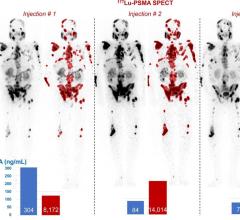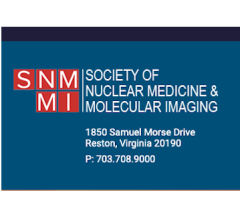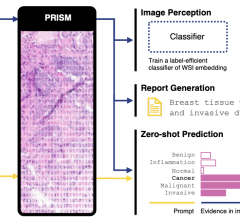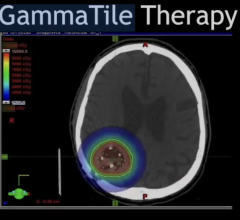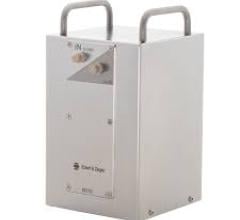
July 18, 2011 — Cardinal Health opened The Center for the Advancement of Molecular Imaging on Monday in Phoenix. The center is a new, first-of-its-kind collaboration laboratory that will expedite the development of nuclear imaging agents that treat complex diseases like cancer, heart disease and neurological disorders.
Cardinal Health’s industry-leading scientists, engineers and manufacturing experts will leverage state-of-the-art technology and infrastructure at the newly renovated and expanded 25,000-square-foot campus to help pharmaceutical companies and academic research institutions accelerate the development, testing and commercialization of new radiopharmaceuticals and positron emission tomography (PET) imaging agents. They will also leverage the center to improve the manufacturing and dispensing process for imaging agents.
The center brings more than 20 new, high-tech jobs to Phoenix, including roles for radiochemists, engineers, scientists, product development managers, project managers and quality and regulatory personnel.
The campus will house large-scale facilities to produce positron emission tomography (PET) imaging agents. When injected into the body, these specialized radiopharmaceuticals, called biomarkers, detect and trace abnormal cellular functions that are associated with a variety of diseases. Visible using sophisticated imaging scanners, these biomarkers make it easier for physicians to non-invasively diagnose critical, life-threatening diseases in their earliest stages. They can also improve physicians’ ability to track the effectiveness of patient treatment plans.
“The launch of the Center for the Advancement of Molecular Imaging is a strategic investment in the future of the molecular imaging and pharmaceutical industries,” said John Rademacher, president of Cardinal Health’s nuclear and pharmacy services. “By helping pharmaceutical companies and academic research institutions accelerate innovation and reduce the time it takes to get new imaging agents to market, we can more accurately diagnose diseases earlier in their onset. Ultimately, our goal is also to drive better patient outcomes by helping physicians track how well patients are responding to treatments."
The center will also house stand-alone laboratory space to allow the company’s partners to conduct confidential radiopharmaceutical and PET biomarker experiments. It will also provide access to the quality and regulatory expertise that is critical to earning U.S. Food and Drug Administration (FDA) approval of new imaging agents, and will house a global training facility for Cardinal Health’s nuclear pharmacy services business.
At the center, Cardinal Health will leverage its considerable expertise in lean six sigma methodology – capabilities that simplify processes and eliminate process waste – to improve the quality, reliability and scalability of PET manufacturing. Rademacher says these steps are critical to helping the industry develop large-scale commercial production capabilities that can more easily ramp up to meet growing market demand for new radiopharmaceuticals.
Once new PET drugs are FDA-approved, pharmaceutical companies and research institutions will also have access to Cardinal Health’s industry-leading network of manufacturing facilities and its nationwide network of more than 155 nuclear pharmacies. More than 100 of these nuclear pharmacies are “PET-enabled” to prepare and dispense high-energy PET imaging agents in unit dose form to more than 90 percent of the U.S. patient population.
Key features of The Center for the Advancement of Molecular Imaging include:
Collaboration laboratory: The center will house “collaborative laboratories” where Cardinal Health will bring industry innovators together with its experts in the fields of scientific research, technology, quality and regulatory affairs and manufacturing. These cross-functional teams will increase the speed of innovation by finding new ways to decrease the time it takes to secure FDA approval of new imaging agents and by sharing best practices for commercialization.
State-of-the-art PET manufacturing facility: The center will house the latest technology in PET manufacturing, including dual cyclotrons, which can be used to produce large quantities of radioisotopes. It will also contain production facilities that allow for the simultaneous radiosynthesis of multiple imaging agents, for both commercial and research purposes.
Fully functional, confidential, private guest laboratories: The center will have dedicated, fully equipped laboratories where guest researchers can conduct experiments that will produce, test and develop radioactive products, with the goal of supporting more rapid deployment into large-scale, multi-site clinical trials.
Global PET Production Control Center: The center will also make it easier for pharmaceutical companies and academic institutions to monitor the production of their drugs at any of Cardinal Health’s PET manufacturing sites during multi-site clinical trials. The center’s PET production control center will provide video access to each of Cardinal Health’s PET manufacturing sites, effectively serving as a “mission control,” where partners can trouble shoot, offer technical assistance and more efficiently deploy resources against manufacturing challenges.
For more information: www.cardinalhealth.com


 January 27, 2026
January 27, 2026 
